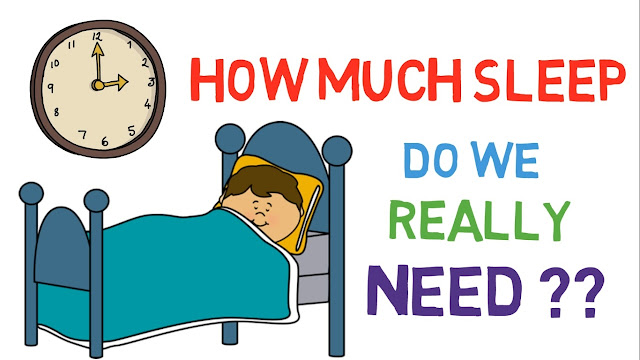Understanding Sleep
Sleep is a vital, often neglected, component of every person’s overall health and well-being. Sleep is important because it enables the body to repair and be fit and ready for another day. Getting adequate rest may also help prevent excess weight gain, heart disease, and increased illness duration.
Sleep Requirements by Age
The National Sleep Foundation and other health organizations provide guidelines about how much sleep people need:
Neworns (0-3 months)
Recommended Sleep
14-17 hours each day.
Newborns need long hours of sleep to support rapid mental and physical development.
Infants (4-11 months)
Recommended Sleep
12-15 hours including naps.
Infants still require up to three naps a day, and sleep is crucial for their development.
Toddlers (1-2 years)
Recommended Sleep
11-14 hours including one or two naps per day.
Regular naps are still important to provide enough rest for a toddler’s development.
Preschoolers (3-5 years)
Recommended Sleep
10-13 hours, which may include a daytime nap.
Sleep at this age supports growing independence and learning.
School-age children (6-13 years)
Recommended Sleep
9-11 hours.
Good sleep is crucial for cognitive processes and affects school performance.
Teenagers (14-17 years)
Recommended Sleep
8-10 hours.
Many teenagers suffer from sleep deprivation due to social and school pressures.
Young Adults (18-25 years)
Recommended Sleep
7-9 hours.
This age group often experiences sleep disruption due to lifestyle choices and stress.
8. Adults (26-64 years)
Recommended Sleep
7-9 hours.
Consistency and sleep hygiene can combat sleep issues arising from work and family responsibilities.
Older Adults (65+ years)
Recommended Sleep
7-8 hours.
Sleep patterns may change with age, and health issues can disrupt sleep.
Factors Affecting Sleep
Several factors can affect your sleep duration and quality:
Genetics
Some people genetically require more or less sleep than others.
Health Conditions
Disorders like insomnia, sleep apnea, anxiety, and depression can significantly affect sleep.
Lifestyle and Occupation
Shift work, stress, screen time, and physical activity levels can all impact sleep.
Environment
A noisy, too bright, or uncomfortable bedroom environment can disrupt sleep.
Improving Sleep Quality
Here are some tips for improving sleep:
Consistency
Stick to a sleep schedule, even on weekends.
Environment
Keep your bedroom dark, cool, and quiet. Invest in a comfortable mattress and pillows.
Pre-sleep Routine
Develop a relaxing pre-sleep routine, such as reading a book or taking a warm bath.
Technology
Limit screen time at least an hour before bed.
Diet and Exercise
Avoid heavy meals, caffeine, and alcohol before sleep and try to incorporate regular exercise into your daily routine.
Sleep Disorders and Management
Common sleep disorders include insomnia, sleep apnea, restless legs syndrome, and narcolepsy. If you suspect you have a sleep disorder, it’s important to consult a healthcare provider. Treatment may include lifestyle changes, medications, or other therapies such as Continuous Positive Airway Pressure (CPAP) machines for sleep apnea.
FAQs About Sleep
How do I know if I’m getting enough sleep?
If you feel drowsy during the day, find it hard to wake up in the morning, or need caffeine to stay awake, you might not be getting enough sleep.
Can you catch up on missed sleep?
While occasional naps can help reduce a sleep deficit, consistently getting enough sleep is the only way to avoid the negative health effects of sleep deprivation.
Does more sleep equate to better health?
More isn’t always better. Too much sleep can also be harmful. The key is the right balance that leaves you feeling rested and alert.
What is the best way to shift to an earlier bedtime?
Gradually adjust your bedtime earlier by 15 minutes each night until you reach your desired bedtime.
Are daytime naps good or bad?
Short naps (20-30 minutes) can help to improve mood, alertness, and performance. However, longer naps or naps taken too late in the day may interfere with nighttime sleep.
How does sleep change as we age?
As people age, they often experience changes in sleep patterns, such as waking up earlier, sleeping less deeply, and having a harder time falling asleep.
What are the signs of a sleep disorder?
Frequent sleep disturbances, daytime sleepiness, loud snoring, pauses in breathing during sleep, and chronic insomnia are common signs of sleep disorders.
In conclusion
sleep is a critical part of our health and well-being. Understanding your personal sleep needs and addressing any sleep issues are important steps towards achieving better health and quality of life. If you’re consistently struggling with sleep, it may be helpful to consult a healthcare provider for further guidance.
- Jaw Fillers For A Defined Jawline Near Ripley, Surrey - June 2, 2025
- What Demigender Identity Means For Gender Expression In Intimacy - June 1, 2025
- Profhilo Treatment Near Ranmore, Surrey - May 31, 2025


